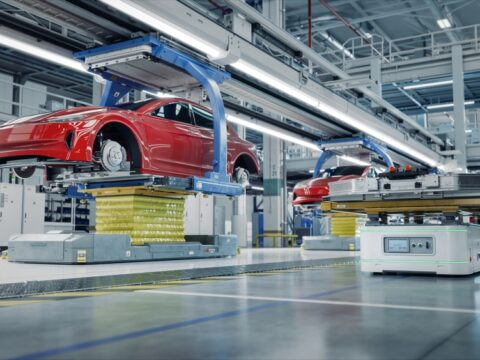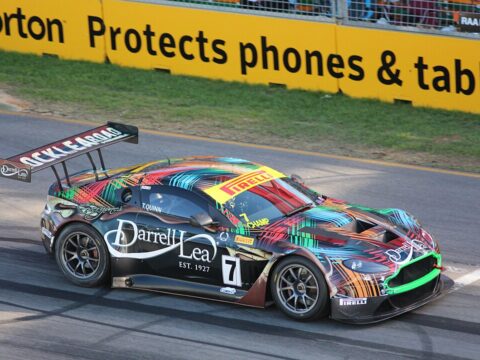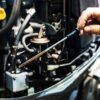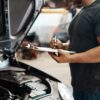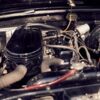Upgrading your car’s handling and stability can make a world of difference in your driving experience. Whether you’re navigating tight corners or cruising on the highway, these enhancements can provide better control, safety, and overall performance. Here are 16 upgrades that can help you achieve a smoother, more responsive ride.
Contents
Performance Tires
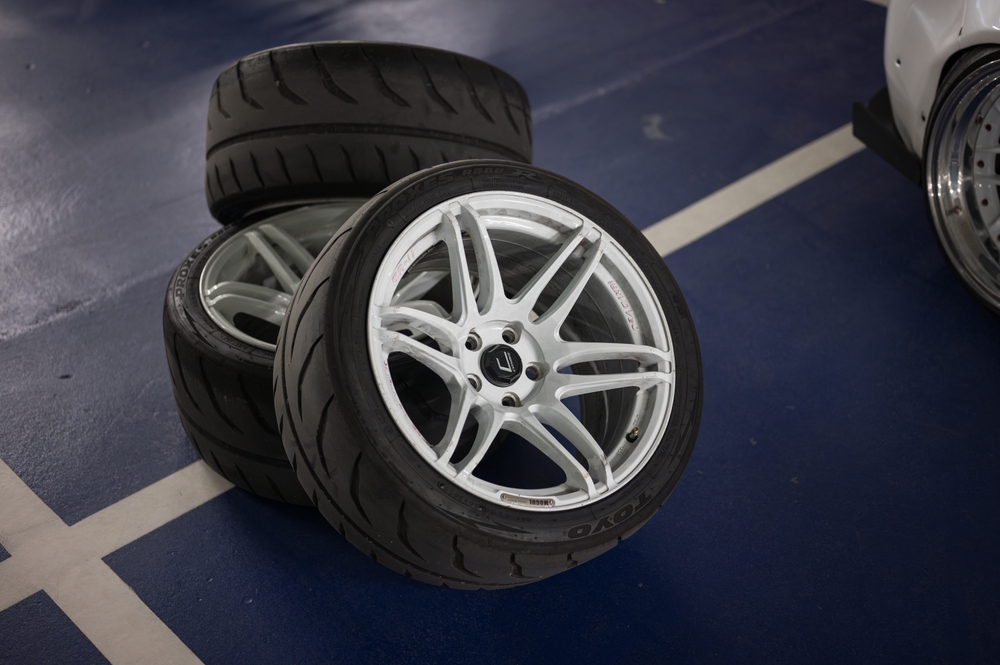
Upgrading to high-performance tires is a straightforward way to boost your car’s handling and stability. These tires are crafted with specialized rubber compounds and advanced tread patterns that offer superior grip on various surfaces. Enhanced traction reduces the risk of skidding and allows for more precise steering, particularly during cornering.
Coilover Suspension
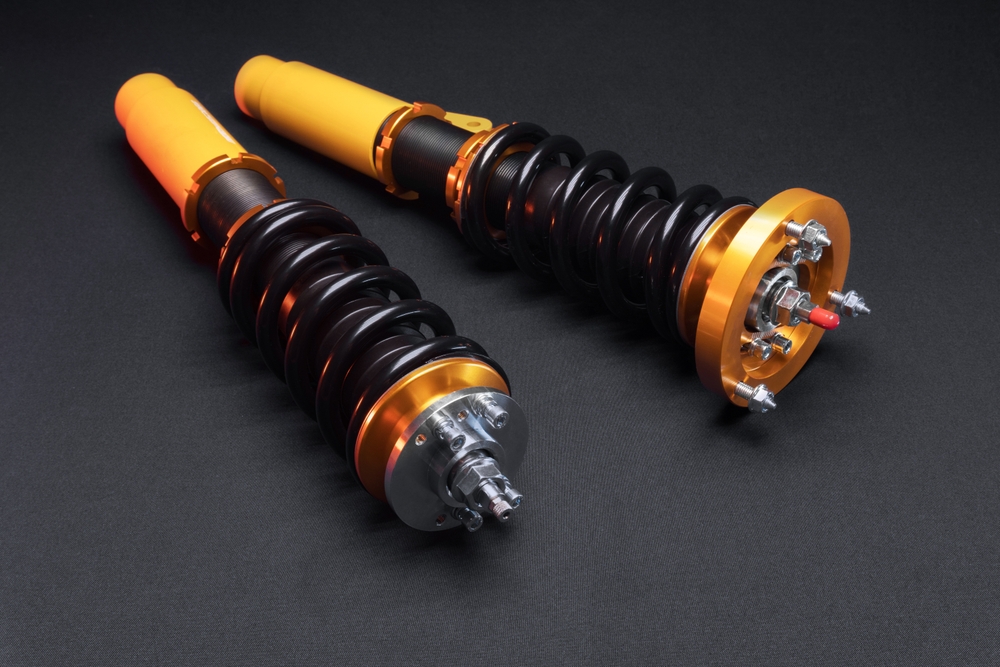
Coilover suspension systems give you the flexibility to adjust your car’s ride height and stiffness, making it more responsive to different road conditions. By lowering the center of gravity, coilovers minimize body roll during sharp turns, significantly improving stability. This adjustability also lets you fine-tune your suspension for a variety of driving environments, whether you’re on a smooth highway or navigating a rough track.
Sway Bars
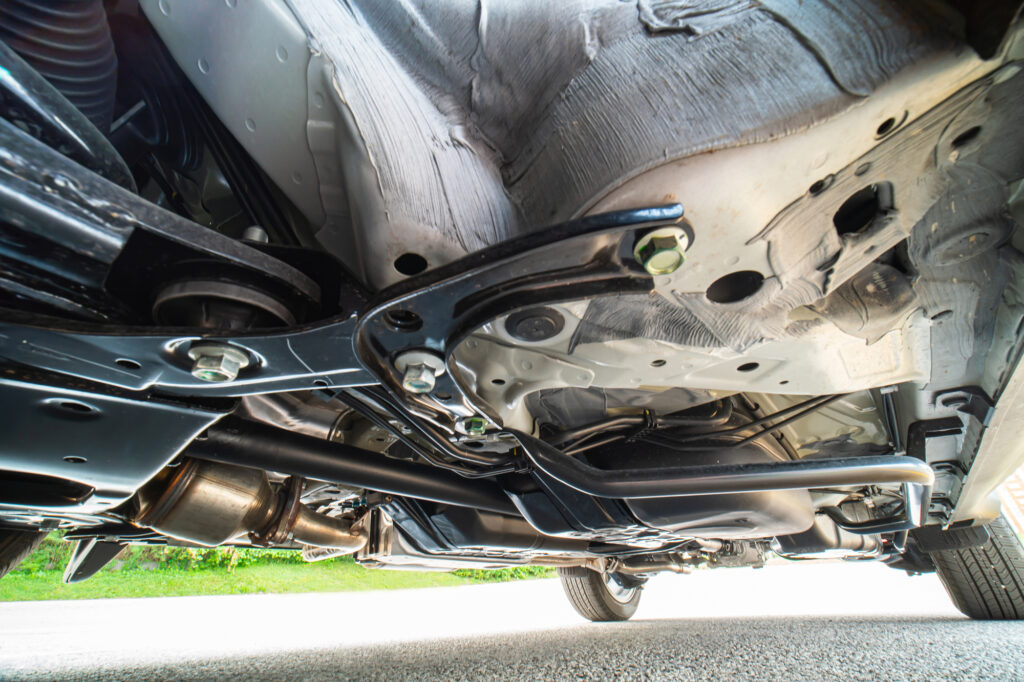
Sway bars, also known as anti-roll bars, play a key role in reducing body roll during turns by connecting the left and right wheels. By stiffening the suspension, they help keep the car level and stable, particularly when cornering at higher speeds. Sway bars are especially effective in minimizing understeer or oversteer, leading to more predictable and controlled handling.
Strut Tower Braces
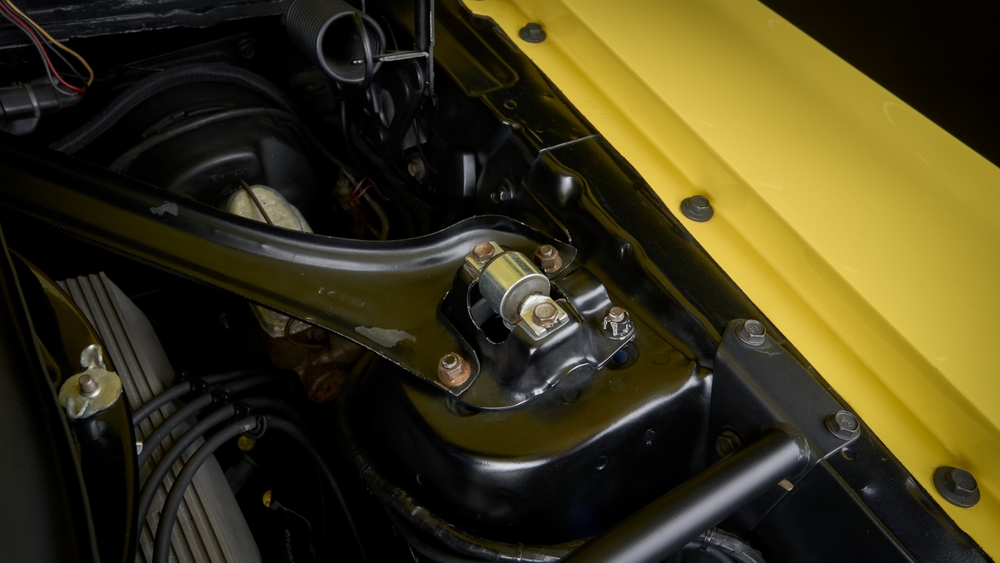
Installing a strut tower brace is an excellent way to enhance your car’s chassis rigidity. These braces connect the tops of the strut towers, reducing chassis flex and resulting in more precise steering and better overall handling. Particularly beneficial for spirited driving, this upgrade helps prevent chassis twisting under heavy loads. As a result, drivers experience a more connected and responsive driving experience.
Performance Brake Pads
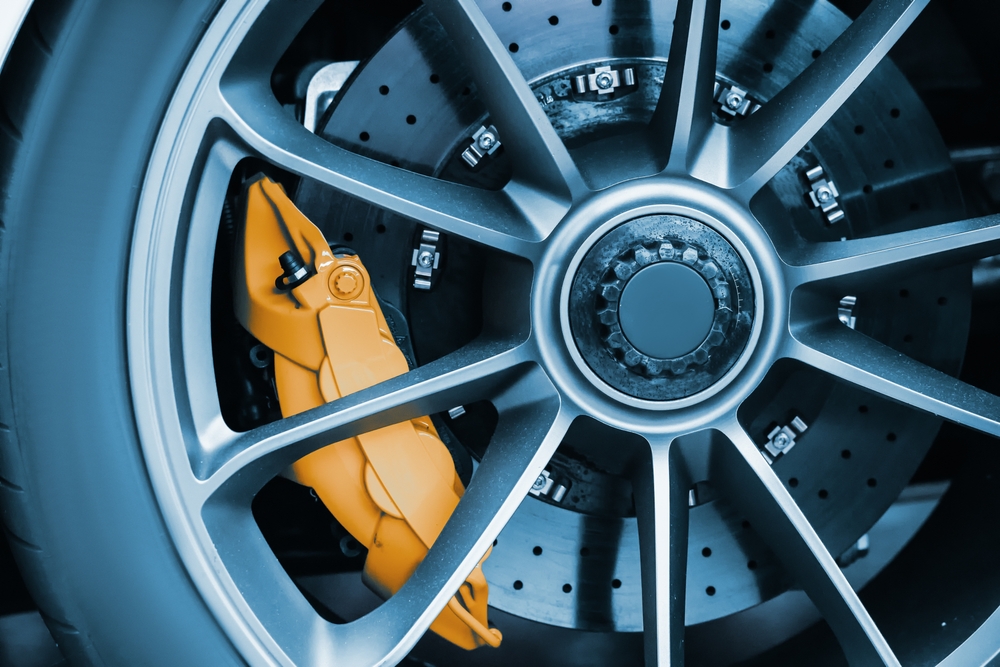
Switching to performance brake pads can elevate both the stopping power and the feel of your car’s brakes. These pads are made from materials that offer greater friction and heat resistance, reducing the likelihood of brake fade during intense driving. With improved braking performance, you can tackle corners more aggressively, confident that your brakes will remain effective.
Lightweight Wheels
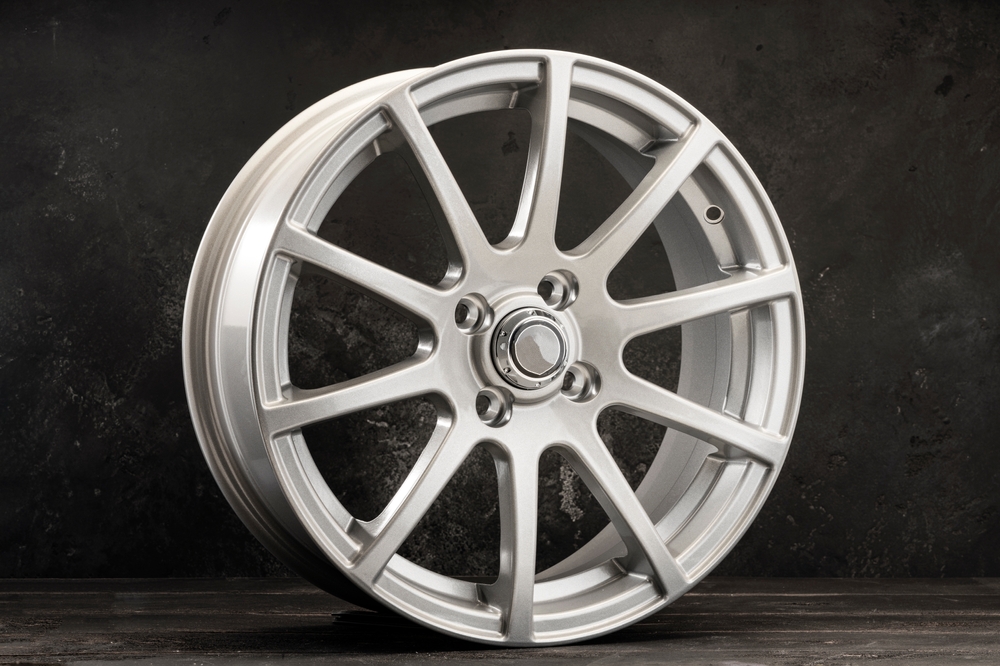
Replacing your stock wheels with lightweight alloy or forged wheels can greatly enhance your car’s handling. Lighter wheels decrease unsprung weight, leading to better suspension response and quicker acceleration and braking. The reduced rotational mass also sharpens steering response, providing more precise control in dynamic driving situations.
Upgraded Bushings
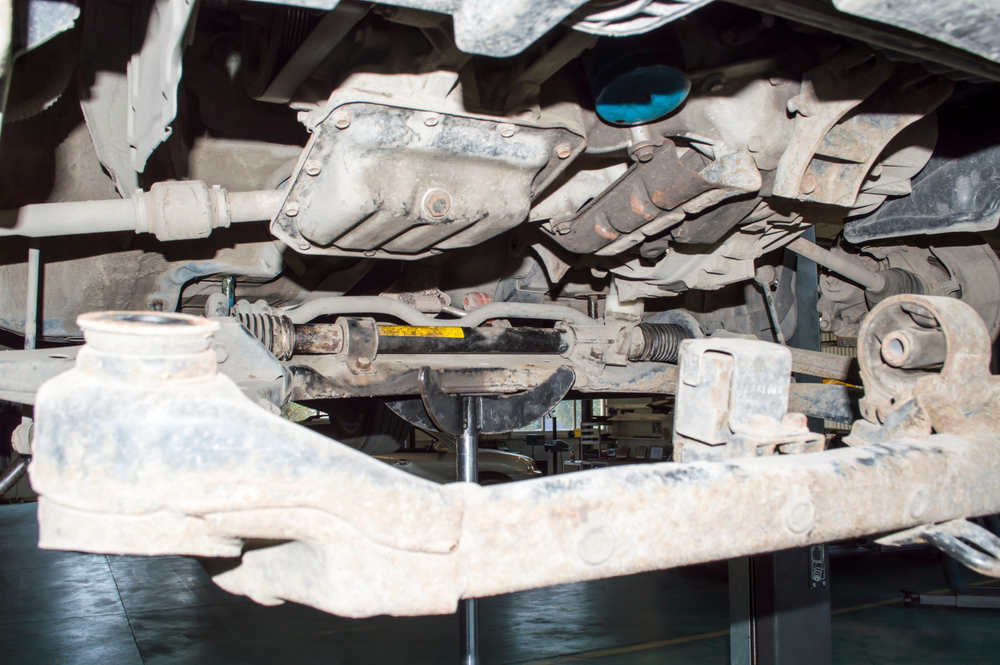
Swapping out your car’s factory bushings for polyurethane or solid bushings can result in significant improvements in handling precision. Over time, rubber bushings can degrade and flex, leading to less precise control. Upgraded bushings are stiffer and more durable, creating a firmer connection between suspension components and the chassis.
Lowering Springs
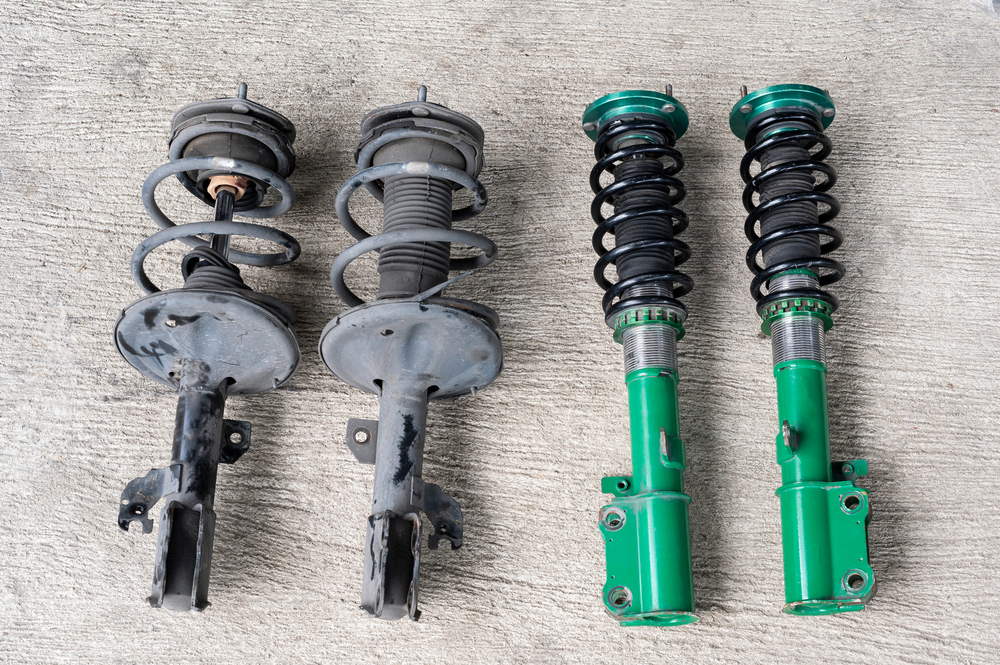
Lowering springs are designed to reduce your car’s ride height, effectively lowering its center of gravity. This change can markedly decrease body roll when cornering, leading to improved handling and stability. Beyond performance benefits, lowering springs also give your car a more aggressive, sportier stance. However, it’s crucial to pair them with compatible shocks to maintain ride comfort.
Limited-Slip Differential
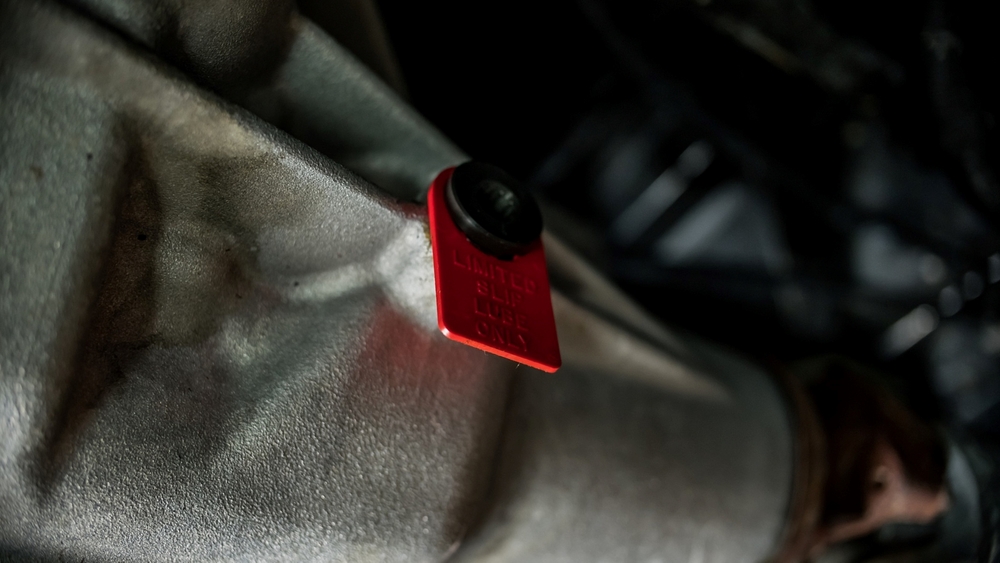
A limited-slip differential (LSD) enhances traction by distributing power to the wheel with the most grip. This feature is especially advantageous during cornering, as it reduces wheel spin and enables more controlled acceleration. Rear-wheel-drive cars, in particular, benefit from an LSD, as they are more prone to losing traction in tight corners. By ensuring power is efficiently transferred to the road, this upgrade boosts both stability and handling.
Performance Shocks and Struts
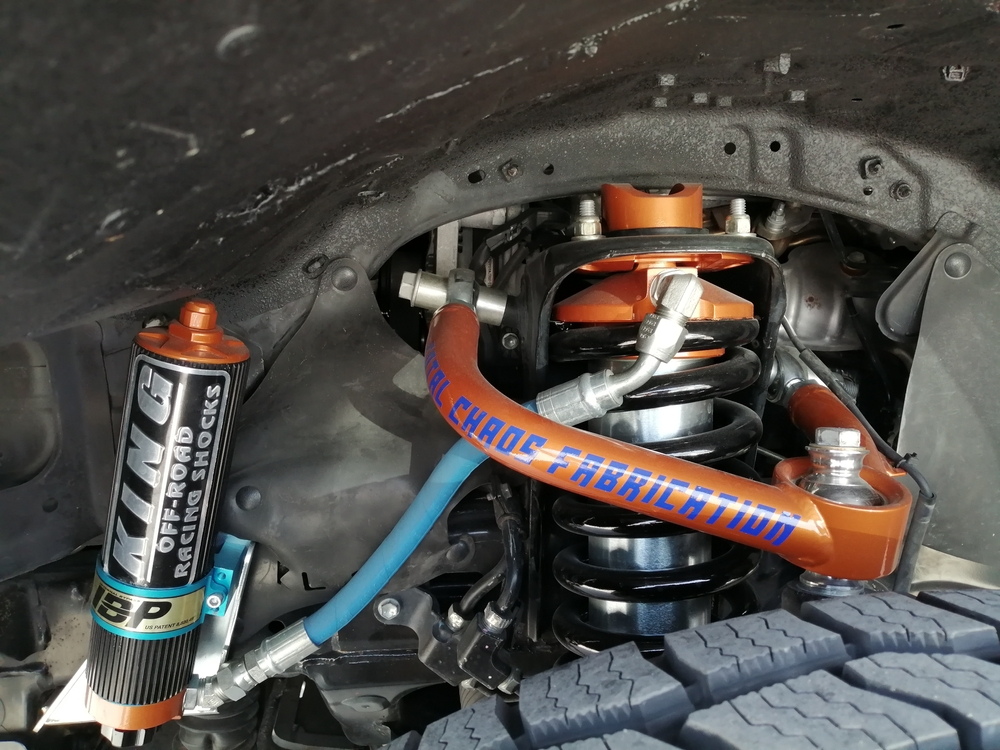
Upgrading to performance shocks and struts can have a profound impact on your car’s handling and ride quality. These components are engineered to offer better damping control, reducing bounce and roll during driving. They also help maintain tire contact with the road, which is crucial for both traction and stability. This upgrade is especially beneficial for drivers who frequently encounter uneven or winding roads.
Brake Lines and Fluid
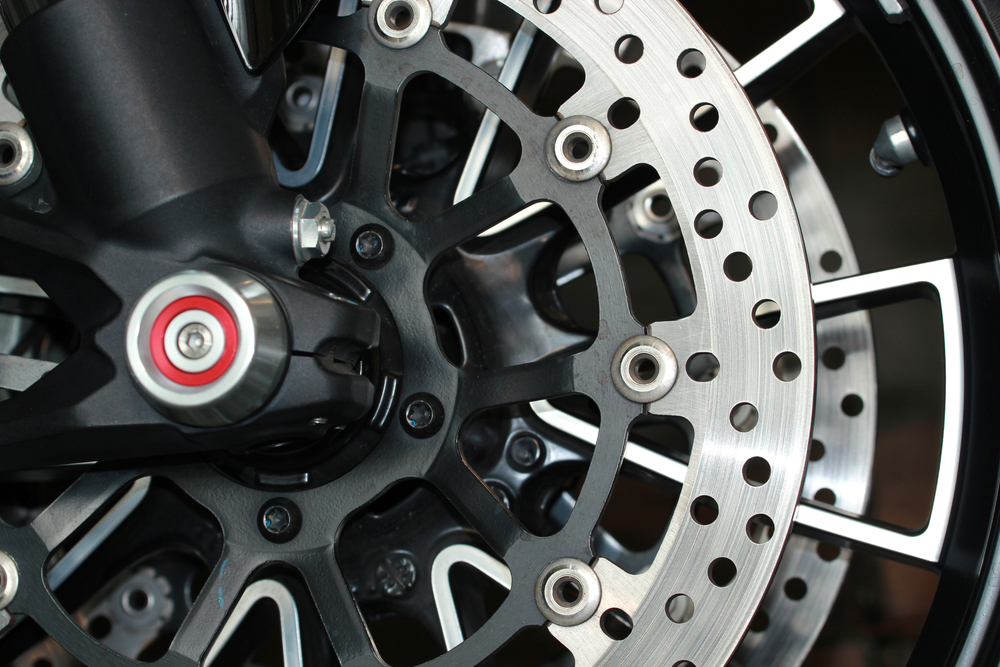
Enhancing your brake system with stainless steel brake lines and high-performance brake fluid can lead to more consistent braking. Stock rubber brake lines may expand under pressure, resulting in a spongy brake pedal feel and diminished performance. Stainless steel lines maintain their integrity under pressure, offering a more responsive braking experience.
Aerodynamic Body Kits

Aerodynamic body kits can improve your car’s handling by optimizing airflow and reducing drag. Components like front splitters, rear diffusers, and side skirts manage airflow, increasing downforce and stability at higher speeds. These kits help keep your car firmly planted on the road, reducing lift and enhancing cornering grip. In addition to performance gains, aerodynamic kits can also enhance your car’s visual appeal.
Performance Engine Mounts
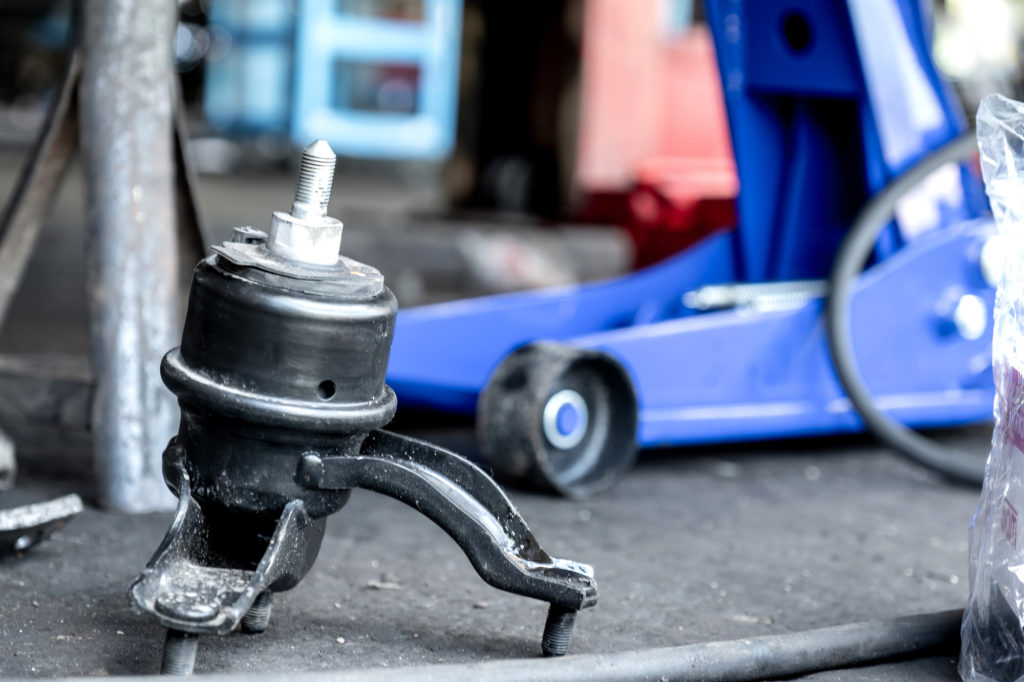
Upgrading to performance engine mounts can reduce engine movement, leading to more precise handling and improved stability. Factory engine mounts are often made of rubber, which can allow excessive engine movement, especially during high-performance driving. Performance mounts, typically made from stiffer materials like polyurethane, reduce this movement and improve throttle response.
Quick-Ratio Steering Rack
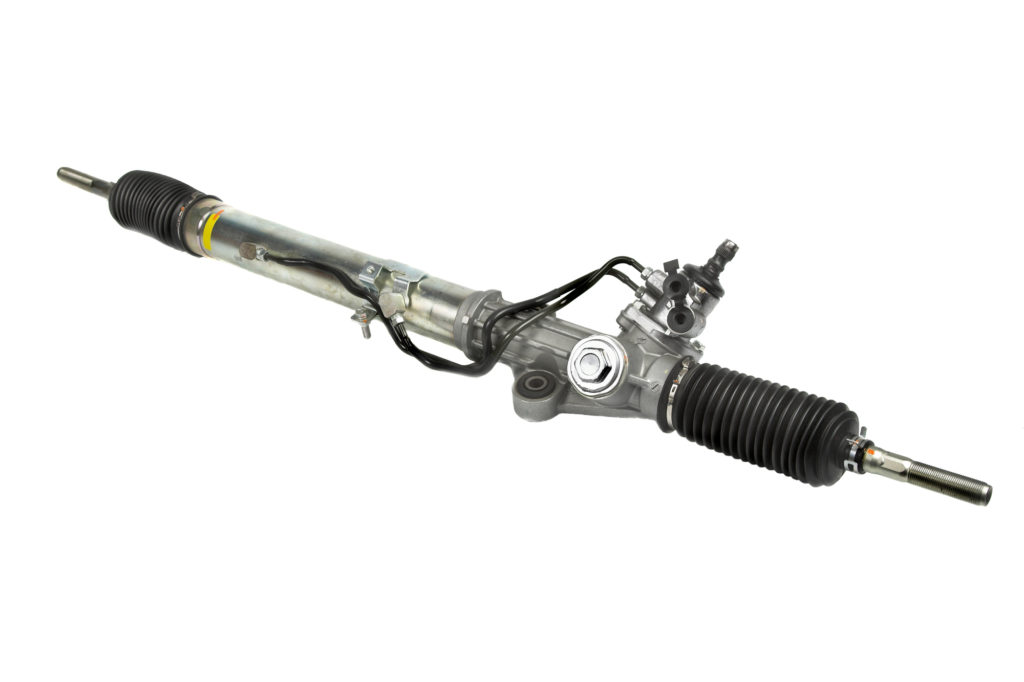
A quick-ratio steering rack reduces the amount of steering input required to turn the wheels, offering faster and more responsive handling. This upgrade is particularly valuable in performance driving, where quick and precise steering is crucial. Additionally, it enhances the overall driving experience by making the car feel more agile and responsive to your inputs. However, you may need to make further adjustments to other components, such as the suspension, to maintain balance.
Upgraded Sway Bar End Links
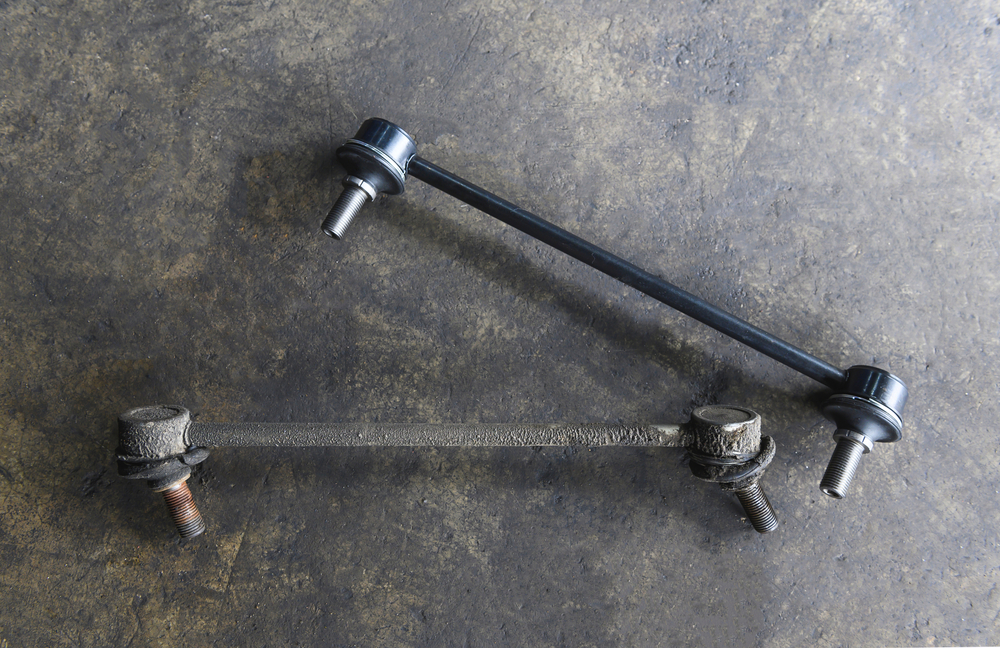
Replacing your car’s stock sway bar end links with upgraded versions can improve handling precision. Factory end links are often made from less durable materials that can flex and degrade over time, reducing handling responsiveness. Upgraded end links, typically made from stronger materials like steel or aluminum, create a more solid connection between the sway bar and the suspension.
Tire Pressure Monitoring System (TPMS)
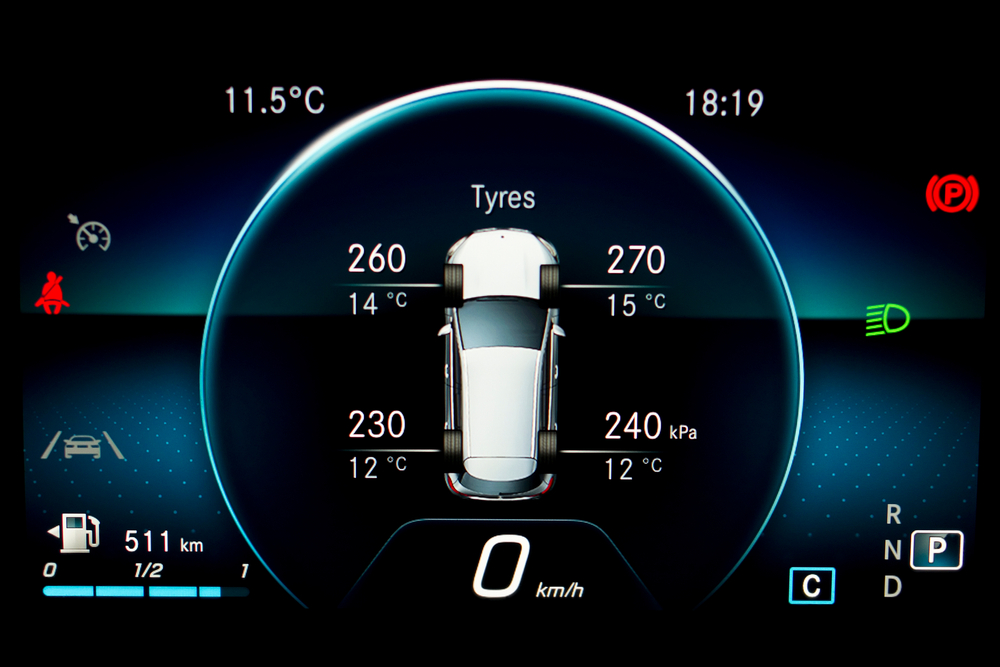
A Tire Pressure Monitoring System (TPMS) ensures your tires are always at optimal pressure, which is vital for maintaining handling and stability. Incorrect tire pressure can cause uneven tire wear, reduced traction, and compromised safety. TPMS provides real-time information about tire pressure, allowing you to make necessary adjustments before they lead to problems.
This article originally appeared on MyCarMakesNoise.
More from MyCarMakesNoise
20 Reasons Why Car Leasing May Not Be the Best Choice

Leasing a car might seem appealing with its lower monthly payments, but there are many hidden costs and restrictions. From higher long-term expenses and mileage limits to wear and tear charges, leasing can end up costing more than you expect. Read More.
13 Japanese Cars That Aren’t Worth the Investment
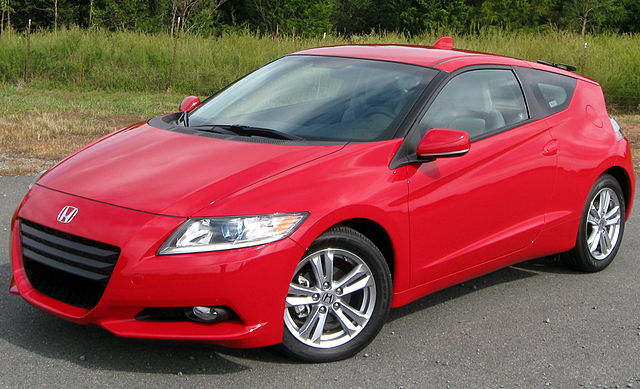
When considering your next vehicle purchase, it’s important to be aware of certain Japanese models that might not meet expectations in terms of reliability and performance. Read More.
25 Most Intimidating Military Vehicles of All Time

When it comes to military power, few things are as awe-inspiring as the sight of a formidable vehicle designed for battle. From massive tanks to agile armored cars, these machines embody strength, strategy, and technological prowess. Read More.

